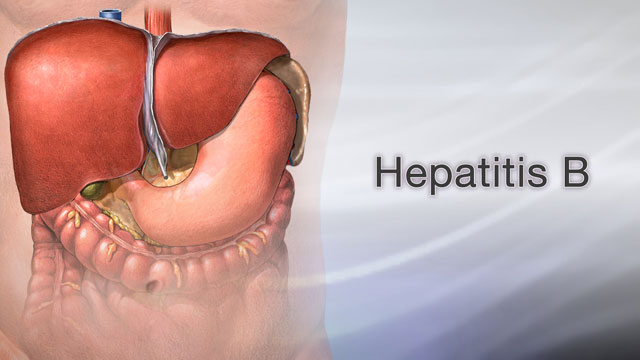Find Out “10 Important Health Tips for Hepatitis Patients” Hepatitis is a viral infection that affects the liver and can lead to severe health complications if not managed properly.
If you or someone you know has been diagnosed with hepatitis, it’s crucial to take certain precautions and adopt a healthy lifestyle to protect your liver and overall well-being. In this article, we will discuss ten important health tips specifically tailored for hepatitis patients.

10 Important Health Tips for Hepatitis Patients
Living with hepatitis requires making certain lifestyle changes to ensure the best possible outcomes for your health. By following these ten health tips, you can effectively manage your condition and improve your quality of life.
Understand the Types of Hepatitis
Hepatitis can be categorized into different types, including hepatitis A, B, C, D, and E. It’s important to understand the specific type of hepatitis you have, as each type has different treatment options, progression, and potential complications.[1]
Follow a Balanced Diet
Maintaining a healthy diet is crucial for hepatitis patients. Include a variety of fruits, vegetables, whole grains, lean proteins, and healthy fats in your meals. Avoid processed foods, sugary snacks, and foods high in fat and cholesterol. Consult a dietitian to create a personalized meal plan that supports liver health.[2]
Avoid Alcohol and Tobacco
Alcohol and tobacco are harmful to the liver and can worsen the progression of hepatitis. It is essential to avoid alcohol completely and quit smoking. These lifestyle changes will significantly reduce the strain on your liver and minimize the risk of liver damage.
Practice Good Hygiene
Practicing good hygiene is vital to prevent the spread of hepatitis. Wash your hands thoroughly with soap and water before handling food or eating, after using the restroom, and after any contact with blood or bodily fluids. Avoid sharing personal items such as toothbrushes or razors.
Get Vaccinated
Certain types of hepatitis can be prevented through vaccination. Ensure that you are up to date with the hepatitis A and B vaccines. Vaccination can protect you from potential infections and reduce the risk of complications.
Stay Hydrated
Proper hydration is essential for overall health, including liver function. Drink an adequate amount of water throughout the day to keep your body hydrated and support liver detoxification. Avoid sugary beverages and opt for water or herbal teas instead.
Engage in Regular Exercise
Regular exercise is beneficial for everyone, including hepatitis patients. Engaging in moderate physical activities such as walking, swimming, or cycling can improve blood circulation, boost the immune system, and enhance liver function. Consult your doctor before starting any exercise routine.
Manage Stress
Chronic stress can have a negative impact on liver health. Find healthy ways to manage stress, such as practicing yoga, meditation, deep breathing exercises, or engaging in hobbies and activities you enjoy. Prioritize self-care and take time for relaxation.
Follow Medical Advice
…Communicate openly with your doctor about any concerns or symptoms you may be experiencing. Adhering to your medical treatment plan will help manage the progression of hepatitis and minimize complications.
Maintain a Supportive Network
Living with hepatitis can be challenging, both physically and emotionally. Surround yourself with a supportive network of family, friends, and healthcare professionals who can provide encouragement and understanding. Joining support groups or seeking counseling can also be beneficial in coping with the emotional aspects of the condition.
Conclusion
Living with hepatitis requires proactive measures to safeguard your liver and overall health. By following these ten important health tips, including understanding the types of hepatitis, adopting a balanced diet, practicing good hygiene, and managing stress, you can effectively manage your condition and improve your quality of life.
FAQs (Frequently Asked Questions)
1. Can hepatitis be cured? The curability of hepatitis depends on the type. While there is no cure for hepatitis B and C, they can be managed with appropriate medical treatment. Hepatitis A and E typically resolve on their own without specific treatment.
2. Can I still travel if I have hepatitis? In most cases, hepatitis should not restrict your ability to travel. However, it is advisable to consult with your healthcare provider before making any travel plans, especially to regions with higher risks of hepatitis infections.
3. Are there any specific dietary restrictions for hepatitis patients? While there are no strict dietary restrictions, it is recommended to follow a balanced diet that supports liver health. Avoiding alcohol, tobacco, processed foods, and foods high in fat and cholesterol is important. Consult a dietitian for personalized dietary recommendations.
4. Can I engage in physical activities with hepatitis? Yes, moderate physical activities are generally safe and beneficial for hepatitis patients. However, it is advisable to consult your healthcare provider before starting any exercise routine, particularly if you have advanced liver disease.
5. How can I reduce the risk of transmitting hepatitis to others? To reduce the risk of transmitting hepatitis to others, practice good hygiene, avoid sharing personal items, use barrier methods during sexual activity, and ensure that close contacts are vaccinated against hepatitis A and B.
Read Also| 15 Important Health Tips For Asthma Patients









